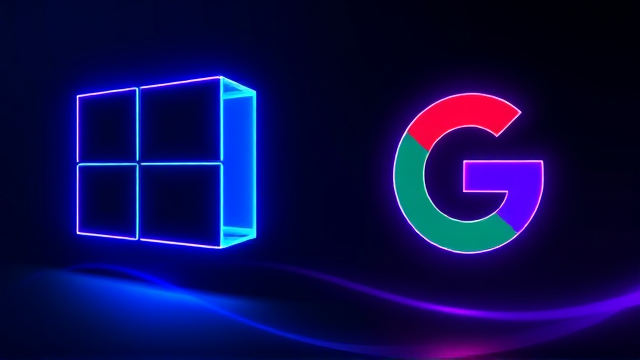Microsoft Copilot Integrates with Google Apps via New Update
In a strategic maneuver that redefines the boundaries of artificial intelligence interoperability, Microsoft has initiated a phased rollout of a Windows update enabling its Copilot generative AI to interface directly with Google's ecosystem of applications, contingent upon explicit user opt-in permissions. This development, far from being a mere feature update, represents a profound shift in the competitive dynamics of the AI landscape, where Microsoft's flagship AI assistant, a direct competitor to Google's own Gemini, OpenAI's ChatGPT, and Anthropic's Claude, is now being granted a visa to operate within the digital territory of its primary rival.The technical architecture facilitating this cross-platform integration likely hinges on sophisticated API handshakes and OAuth authentication protocols, allowing Copilot to execute cross-app searches and automate complex, multi-step tasks that span both Microsoft’s and Google’s domains. This is not simply a convenience feature; it is a calculated gambit in the grand strategy of AI platform dominance, echoing historical precedents like the early browser wars where interoperability became a key battleground.By embedding itself within the Google workflow, Microsoft is effectively positioning Copilot as a unifying, meta-layer of intelligence, a move that could significantly enhance user stickiness and data flow while challenging the walled-garden approach traditionally favored by tech giants. From an AI ethics and policy perspective, this integration raises immediate questions about data sovereignty, privacy, and the potential for algorithmic bias as one corporation's AI model gains access to the data repositories of another.How will user prompts and data be processed, stored, and anonymized when they traverse these corporate boundaries? The opt-in mechanism is a crucial, yet potentially insufficient, safeguard against the complexities of informed consent in an age of data-intensive AI. Furthermore, this collaboration-competition, or 'co-opetition,' signals a maturation of the AI market, moving beyond pure head-to-head competition towards a more nuanced ecosystem where the most valuable AI might be the one that can orchestrate workflows across the widest array of platforms, regardless of their origin.For developers and the future of LLM (Large Language Model) development, this sets a new benchmark for open, or at least permeable, systems. It pressures other AI players to consider similar integrations or risk being perceived as isolated silos.The long-term consequence could be an accelerated push towards standardized AI communication protocols, much like the early internet's TCP/IP, fostering an environment where AI agents from different vendors can seamlessly collaborate to fulfill user intent. While the immediate user experience promises heightened productivity, the underlying narrative is one of a strategic envelopment, where Microsoft aims to make Copilot an indispensable component of the digital workflow, irrespective of the underlying application stack. This update is less about a truce between tech titans and more about a new front in the AI war, fought not with exclusive features, but with pervasive integration.
Latest News
It’s quiet here...Start the conversation by leaving the first comment.
